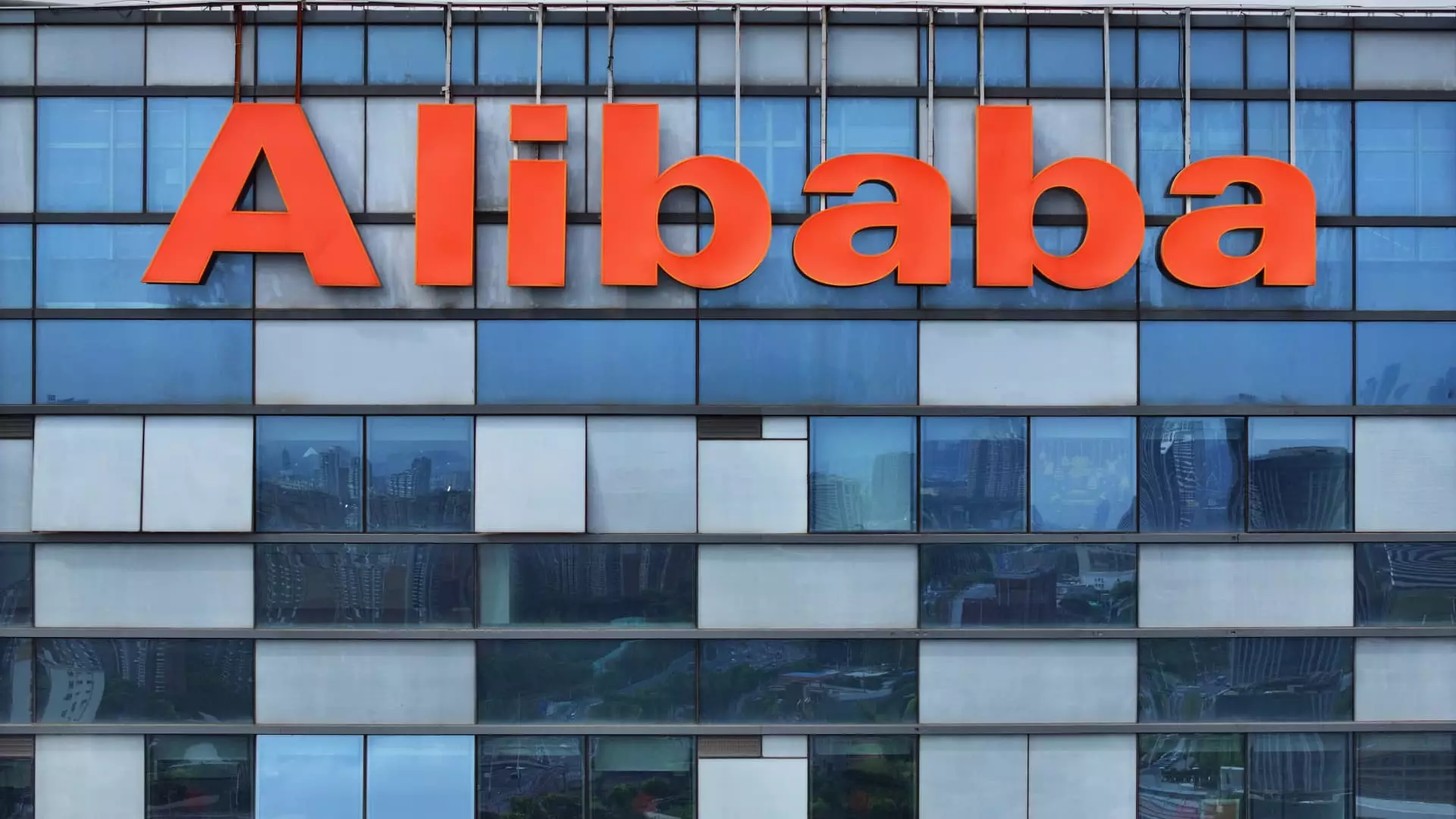The resurgence of Alibaba Group Holdings Ltd. in the Hong Kong stock market marks a significant pivot for the Chinese tech giant, reflecting resilience amid a tumultuous economic landscape. Recent quarterly results indicated robust growth, particularly within its cloud intelligence and e-commerce segments, leading to a notable surge in stock prices. This article delves into the implications of these results, highlighting Alibaba’s strategic maneuvers in response to both market demands and regulatory pressures.
On a recent trading day, Alibaba’s shares surged by as much as 11% before closing at a laudable 9.18% increase. This uptick was largely attributed to the release of their quarterly financial results showcasing a net income of 48.945 billion yuan (approximately $6.72 billion). This figure not only exceeded analysts’ expectations but also represented a staggering tripling in comparison to the same period the previous year. Such financial performance represents more than just numbers; it reflects Alibaba’s adeptness in navigating a complex market landscape.
Moreover, the company’s revenue of 280.15 billion yuan surpassed estimates of 279.34 billion yuan, dispelling notions that it might be faltering in its operations. Analysts from Nomura projected a buoyant outlook for Alibaba’s e-commerce business, especially through the first half of the fiscal year 2025, bolstered by government initiatives aimed at stimulating consumer spending. With China’s commitment of 300 billion yuan toward enhancing trade-in and equipment upgrade policies, Alibaba stands to benefit from policies that drive consumption.
One of the key highlights of Alibaba’s trajectory is its considerable progress in cloud technology and artificial intelligence (AI). As outlined by Barclays, the company has reported a significant uptick in the demand for AI inference capabilities—projected to constitute up to 70% of its new business. With the launch of its Qwen 2.5-Max AI foundation model, Alibaba is repositioning itself in the highly competitive AI arena, challenging established giants and emphasizing its commitment to innovation.
The company is poised for a significant investment spree over the next three years focused on AI and cloud infrastructure, aiming to spend more than what it has cumulatively invested over the past decade—approximately 270 billion yuan. This ambitious plan highlights the company’s strategic shift toward technology-centric growth amidst increasing global competition.
Alibaba’s founder, Jack Ma, has notably remained out of the spotlight since the regulatory crackdown that began in 2020. However, his recent participation in a private meeting with Chinese President Xi Jinping marks a potential softening of the regulatory stance towards private enterprises. During this meeting, Xi’s call for private businesses to exhibit their capabilities presents an encouraging sign for Alibaba and the broader Chinese tech sector, which has faced intense scrutiny and regulation over recent years.
The regulatory crackdown that forced the cancellation of Ant Group’s initial public offering in 2020 introduced headwinds for Alibaba, but the company has shown remarkable adaptability in face of these challenges. By focusing on growth areas such as AI and cloud computing, Alibaba aims to pivot its operational model, buffering potential vulnerabilities stemming from regulatory scrutiny.
Alibaba’s resurgence is not an isolated event but rather part of a broader trend affecting the Chinese technology sector. Following the emergence of AI startup DeepSeek, which has begun to challenge the traditionally U.S.-dominated ecosystem, there appears to be a wave of renewed interest and investment in tech innovation in China. This renaissance is being viewed as a pivotal shift that might lead to significant competitiveness on the global stage.
Alibaba’s latest quarterly results illustrate more than just a rebound in stock prices; they signal a strategic pivot towards sustainable growth through substantial investment in AI and cloud technologies. By capitalizing on government initiatives and demonstrating resilience in adapting to market demands, Alibaba has positioned itself well amidst both regulatory and competitive challenges. The future for Ali Baba, as well as the broader Chinese tech sector, looks promising, framing a narrative of innovation, investment, and strategic foresight.

